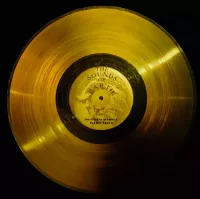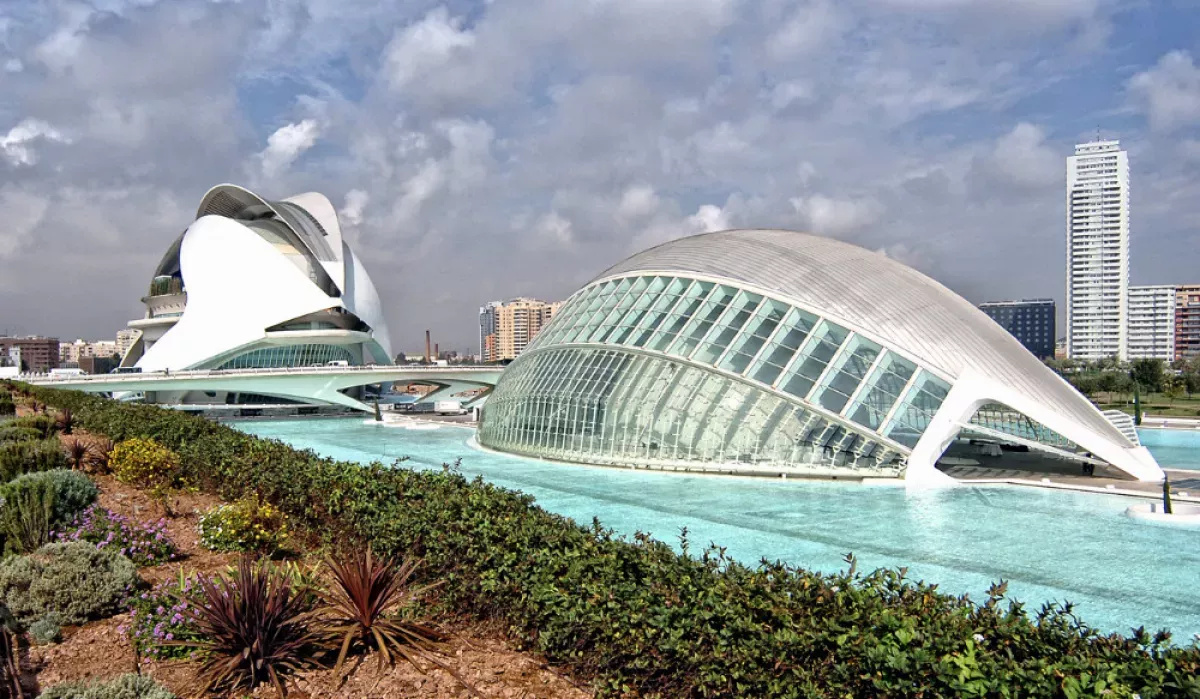Valencia is a major Spanish city situated on the Mediterranean coast. As the capital of its namesake province and autonomous community, it's the third most populous municipality in Spain, boasting a population of 807,693 within the city proper, expanding to 1,582,387 in the urban area, and a substantial 2,522,383 within the metropolitan region. The city is located along the Turia River, on the eastern coast of the Iberian Peninsula.
1901: Falles Monument Prizes Inaugurated
The city of Valencia began awarding prizes for the best Falles monuments in 1901, fostering competition among neighborhood groups.
1909: Regional Exhibition
A regional exhibition showcasing advancements in agriculture and industry took place in Valencia in 1909 near the L'Albereda avenue.
1911: Purchase of Valencia Lake
In 1911, the Valencia City Council purchased the lake from the Spanish Crown for 1,072,980 pesetas.
1914: Impact of World War I
World War I began in 1914, significantly impacting Valencia's economy, particularly its citrus exports.
1918: End of World War I
World War I ended in 1918, having significantly affected Valencia's economy.
1931: Second Spanish Republic
The Second Spanish Republic was proclaimed in 1931, ushering in a period of increased democratic participation and political awareness in Valencia.
1933: Rise of the Conservative Front
The rise of the Conservative Front to power in 1933 significantly influenced the political climate in Valencia during the Second Spanish Republic.
October 1937: Government Relocates from Valencia
On October 31, 1937, the Republican government moved from Valencia to Barcelona.
1937: Start of Temperature Records
The year 1937 marks the beginning of the period for which temperature records are available for Valencia.
March 1939: Surrender of Valencia and Nationalist Entry
On March 30, 1939, Valencia surrendered, and Nationalist troops entered the city, marking the end of Republican control during the Spanish Civil War.
1939: End of the Second Spanish Republic
The Second Spanish Republic ended in 1939 with the victory of Francoist forces in the Spanish Civil War.
February 1956: Record Low Temperature
On February 11, 1956, Valencia experienced its lowest recorded temperature since 1937, plummeting to -7.2 °C (19.0 °F).
October 1957: Turia River Flood
In October 1957, a devastating flood from the Turia River caused significant casualties and damage in Valencia, leading to urban renewal projects.
January 1960: Rare Snowfall in Valencia
On January 11, 1960, Valencia experienced a rare snowfall, the most recent accumulation of snow on the ground.
January 1965: Falles Declared of International Tourist Interest
On January 25, 1965, Valencia's Falles festival was designated as a Celebration of International Tourist Interest (Festes d'Interés Turístic Internacional).
1965: Falles Declared Fiesta of National Tourist Interest
In 1965, the Falles festival in Valencia was declared a Fiesta of National Tourist Interest in Spain.
1976: Albufera Nature Reserve Designation
In 1976, the Albufera Lake and surrounding area, totaling 21,120 hectares, was designated as the Parc Natural de l'Albufera (Albufera Nature Reserve) due to its significant cultural, historical, and ecological value.
1979: End of International Fairs Monopoly
In 1979, the monopoly on international fairs held by Valencia and Barcelona was abolished.
1982: Valencia Designated Capital of Valencian Community
In 1982, with the advent of democracy and the establishment of the Valencian Community, Valencia was designated as its capital.
1983: Regional Law on Valencian Language
The regional Law on the Use and Teaching of the Valencian Language, enacted in 1983, designated Valencia as a territory with Valencian linguistic predominance.
1991: Start of PP's Mayoralty
1991 marks the beginning of the period during which the People's Party (PP) consistently held the mayorship of Valencia until Joan Ribó's victory in 2015.
1993: Valencian Language on Street Signs
In 1993, Valencia's municipal government decided to use only Valencian for street sign plaques.
1996: Lonja de la Seda Declared World Heritage Site
The Lonja de la Seda in Valencia was designated a UNESCO World Heritage Site in 1996.
2000: Low Percentage of Foreign-Born Population
In 2000, the foreign-born population in Valencia was at a low of 1.5%.
2000: Valencia CF UEFA Champions League Runner-Up
Valencia CF finished as runners-up in the UEFA Champions League in 2000.
2001: Population Baseline
This entry marks the start of the period (2001-2011) used to calculate population growth in the Horta of Valencia.
2001: Valencia CF UEFA Champions League Runner-Up
Valencia CF were again runners-up in the UEFA Champions League in 2001.
2003: Musikeon Music Courses Begin in Valencia
In 2003, Valencia became the host city for Musikeon's music courses, a prominent music institution in the Spanish-speaking world.
2003: Selection as America's Cup Host
Valencia was selected in 2003 to host the America's Cup yacht race in 2007, marking the first time a European city held the event.
2005: Valencia Firebats Represent Spain in European Playoffs
The Valencia Firebats, four-time national champions, began representing Valencia and Spain in the European playoffs in 2005.
July 2006: Metro Derailment and Papal Visit
In July 2006, Valencia experienced a tragic metro derailment and was also visited by Pope Benedict XVI, who used the Sant Calze, believed by some to be the Holy Grail, during a Mass.
July 2007: America's Cup and Host City Announcement
In July 2007, Valencia hosted the America's Cup, and shortly after, it was announced that the city would host the 33rd America's Cup in 2009.
July 2007: 2007 America's Cup
The 2007 America's Cup yacht races were held in Valencia during June and July, attracting a large number of spectators, including 1,044,373 visitors for the Louis Vuitton stage and 466,010 for the America's Cup match.
2007: Port Modifications for America's Cup
In 2007, Valencia's port underwent significant alterations to accommodate the 32nd America's Cup. The port was divided into two sections, one remaining untouched while the other hosted the Cup festivities, separated by a wall extending into the water to maintain water cleanliness for the races.
August 2008: First Formula One European Grand Prix
Valencia hosted its inaugural Formula One European Grand Prix on August 24, 2008.
2008: Valencia's Port and Economic Significance
In 2008, Valencia's port held its position as the largest on the western Mediterranean coast and the busiest container port in Spain. It was ranked second in overall traffic, handling 20% of Spain's exports, including food, beverages, oranges, furniture, and other goods. The local economy also included manufacturing focusing on metallurgy, chemicals, textiles, shipbuilding and brewing, with small and medium-sized industries playing a significant role. The region experienced lower unemployment than the Spanish average before the economic crisis.
2008: Economic Impact of the Great Recession
Prior to the Great Recession of 2008, Valencia experienced substantial economic growth fueled by tourism and construction, along with advancements in telecommunications and transport. However, the recession led to a shift in the economic landscape.
2008: End of Foreign-Born Population Increase
This marks the end of the period between 2007 and 2008 during which the foreign-born population in Valencia grew by 14%.
2008: European Formula One Grand Prix in Valencia
Valencia hosted the European Formula One Grand Prix from 2008 to 2012.
June 2009: 33rd America's Cup
Valencia hosted the 33rd America's Cup in June 2009.
2009: Increased Percentage of Foreign-Born Population
By 2009, the foreign-born population in Valencia had significantly increased to 9.1%, mirroring similar trends in Madrid and Barcelona, where growth was primarily driven by immigration from Romania, the United Kingdom, and Bulgaria.
2009: Valencia's Economic Recognition Despite Recession
Despite facing economic hardship following the Great Recession, including rising unemployment and debt, Valencia was recognized as the "29th fastest-improving European city" in 2009, highlighting its strength in sectors like commerce, education, entertainment, media, fashion, science, and the arts, contributing to its global status.
2009: Valencia Population and Area
In 2009, the city of Valencia had a population of 809,267 within its administrative limits, covering an area of 134.6 km² (52 sq mi). The urban area, extending beyond these limits, had a population between 1,564,145 and 1,595,000.
2009: Water Tribunal Declared Intangible Cultural Heritage
The Water Tribunal of Valencia (Tribunal de les Aigües de València) was declared an intangible cultural heritage in 2009.
2010: Metropolitan Area Population
In 2010, the metropolitan area of Valencia had a population of 1,770,742 according to citypopulation.de.
2011: Population Growth in Horta of Valencia
Between 2001 and 2011, the population of the Horta of Valencia metropolitan area, with an area of 628.81 km² (242.78 sq mi), increased by 14.1%, adding 191,842 people.
2011: University of Valencia Ranking
In 2011, the University of Valencia was recognized as one of the top four universities in Spain by the Shanghai Academic Ranking of World Universities.
2011: Continuation of People's Party Rule
The People's Party continued its uninterrupted rule of Valencia following the 2011 municipal elections.
October 2012: Valenbisi Bike-Sharing System
As of October 13, 2012, Valencia's bike-sharing program, Valenbisi, offered 2,750 bikes at 250 stations across the city for public use.
2012: Berklee College of Music Opens Valencia Campus
Berklee College of Music established its first international campus outside the U.S. in Valencia at the Palau de les Arts Reina Sofia in 2012.
2012: Fernando Alonso Wins European Grand Prix in Valencia
Fernando Alonso, driving for Ferrari, won the final European Grand Prix held in Valencia in 2012.
2012: Setmana Santa Marinera Declared Festival of National Tourist Interest
Valencia's Holy Week celebration, known as Setmana Santa Marinera, was declared a Festival of National Tourist Interest in 2012.
2013: End of Formula One Races in Valencia
The Formula One European Grand Prix was discontinued in Valencia at the start of the 2013 Formula 1 season.
2014: Peter Lim Acquires Valencia CF
Singaporean businessman Peter Lim purchased Valencia CF in 2014.
2015: Joan Ribó's First Term as Mayor
In 2015, Joan Ribó became the first mayor of Valencia from a party other than the People's Party (PP) since 1991.
2015: Metropolitan Area Population
In 2015, the metropolitan area of Valencia reached a population of 2,300,000 according to the Organization for Economic Cooperation and Development.
2015: End of People's Party Rule
The 24-year rule of the People's Party in Valencia ended after the 2015 municipal election, with Joan Ribó of Compromís becoming the new mayor.
2015: Valencia Hosts Rugby League European Federation C Competition
Valencia hosted its first match in the Rugby League European Federation C competition, a qualifier for the 2017 Rugby League World Cup, in 2015.
November 2016: UNESCO Intangible Cultural Heritage Designation
In November 2016, Valencia's Falles festival was recognized by UNESCO as an intangible cultural heritage.
November 2016: Falles Declared Intangible Cultural Heritage
UNESCO recognized the Falles festival as an intangible cultural heritage on November 30, 2016.
2017: Official Name Change
In 2017, "València" became the sole official name of the city.
2017: Rugby League World Cup Qualification
The 2015 Rugby League European Federation C competition hosted in Valencia served as a qualifier for the 2017 Rugby League World Cup.
2017: Metropolitan Area Population
The population of Valencia's metropolitan area was reported to be 2,513,965 by the World Gazetteer and 2,522,383 by Eurostat in 2017.
2019: Language Use Survey in Valencia
A 2019 survey revealed that 76% of Valencia's population primarily uses Spanish, 1.3% use only Valencian, and 17.6% use both languages daily.
2019: Joan Ribó's Re-election
Joan Ribó was re-elected for a second term as mayor of Valencia in 2019.
October 2021: Shortlisted for European Capital of Smart Tourism
In October 2021, Valencia was nominated for the European Commission's 2022 European Capital of Smart Tourism award.
2021: EIB Loan for Affordable Housing
In 2021, the European Investment Bank (EIB) granted a €27 million loan to Valencia's Sociedad Anónima Municipal Actuaciones Urbanas de Valencia (AUMSA) for affordable public rental housing projects, including construction of 323 new units and renovation of four existing ones, resulting in over 50% expansion of AUMSA's housing stock.
2022: European Capital of Smart Tourism Award Year
2022 was the year for which Valencia was shortlisted for the European Capital of Smart Tourism award.
2022: World's Top Destination for Expatriates and World Design Capital
Valencia was voted the world's best city for expats in 2022 and also held the title of World Design Capital.
May 2023: Most Recent Municipal Election
The latest municipal election in Valencia took place on May 28, 2023, resulting in María José Catalá of the People's Party (PP) replacing Joan Ribó as mayor.
August 2023: Record High Temperature
On August 10, 2023, Valencia recorded its highest temperature since 1937, reaching 44.7 °C (112.5 °F).
2023: Dual Official Name Proposal
In 2023, a proposal was put forth to establish a dual official name, "Valencia / Valéncia".
2024: European Green Capital
Valencia was chosen as the European Green Capital for 2024.
Mentioned in this timeline
La Liga officially LaLiga EA Sports is the top professional...

Barcelona is a major city located on the northeastern coast...

Music is a cultural universal involving the arrangement of sound...
Bolivia a landlocked country in central South America boasts diverse...
Spain officially the Kingdom of Spain is located in Southern...
Italy officially the Italian Republic is a country in Southern...
Trending

29 minutes ago Tsitsipas criticizes ATP over broken promises and inhumane Masters 1000 format.

30 minutes ago Sarah Spain Describes Feeling 'Ill' Near JD Vance at Winter Olympics

1 hour ago Priyanka Chopra shines at Harvard, credits Bollywood stars for Hollywood success.

2 hours ago Civil Rights Icon Jesse Jackson Passes Away at 84: A Legacy Remembered

1 day ago Democrats and Europe grapple with Trump's impact; Newsom says Trump unified Europe.

2 hours ago Elise Mertens faces Emma Navarro in WTA Dubai 2026; Predictions and Odds
Popular
Randall Adam Fine is an American politician a Republican who...

Pam Bondi is an American attorney lobbyist and politician currently...

Kid Rock born Robert James Ritchie is an American musician...

Jesse Jackson is an American civil rights activist politician and...

Barack Obama the th U S President - was the...
The Winter Olympic Games a major international multi-sport event held...
